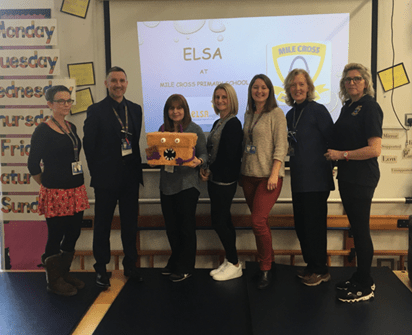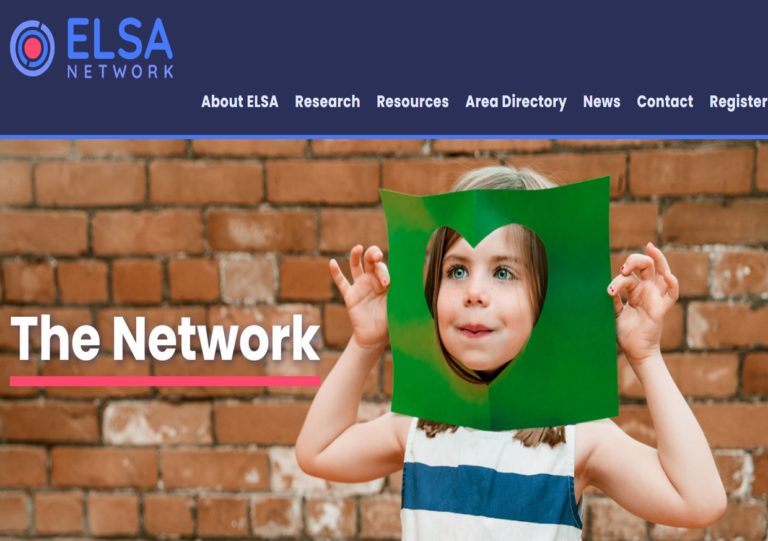Considering and supporting the right person to be an ELSA; the role is emotive and challenging but hugely rewarding. Staff must be well supported, be able to focus on their training and be supported by their school with future supervision.
#895
Emotional Literacy Support Assistants (ELSAs)
Training for school staff to support the emotional needs of their pupils.
Audience
Head Teachers / School Leaders, Local Authorities, Pastoral and Support Staff, School Teachers, TrustsAimed at
KS1, KS2, KS3, KS4, KS5Outcome
Inclusion and SEND, Mental Health and WellbeingApproach
Student/Family SupportWhy was the project needed?
Many pupils were identified as missing out on learning through fixed term and internal exclusions and some were missing school through persistent absence and school refusing. Amongst these pupils a high number had Social, Emotional and Mental Health needs resulting in behaviour concerns and escalating concerns about attendance or risk of exclusions. Schools fed back that access to external therapeutic support for students could be a challenge.
What happened and what was the impact?
The Norwich Opportunity Area (NOA) provided funded emotional literacy support assistant (ELSA) training for teaching assistants in primary and secondary schools. ELSA training covers: social skills, emotions, bereavement, social stories and therapeutic stories, anger management, self-esteem and counselling skills, such as solution focus and friendship.
The Inclusion project manager organised an exploratory meeting with the ELSA training Hub for Norfolk (CEPP – Child Education Psychology Practice), obtaining information about the structure and costs of the training course and ongoing supervision costs as well as the recommended school resources. Supervision is mandatory in order for ELSAs to continue to practice.
The project manager introduced the idea of ELSAs at an Inclusion Champions Meeting with primary and secondary school representatives. Then organised training dates, invited schools to express their interest in participating, recruited delegates, where possible arranged information sessions with the provider and shared details about the training commitment and terms and conditions for the funding for schools, participants and their line manager to agree to.
On completion of training, schools were responsible for identifying pupils to be supported by the intervention and ensuring the ELSA approach formed part of the whole school approach.
What did and didn't work?
Having trained ELSAs in schools builds capacity for schools to support the emotional needs of pupils using in-house resources. ELSAs provide emotional support whilst establishing a warm and respectful relationship with a pupil. They provide a reflective space where the pupil is able to honestly share their thoughts and feelings. At a time when services have been stretched, the ELSA role has provided pupils with early help and counselling approaches, and where needed, a stepping stone to specialist services.
A strong, open and honest relationship with the ELSA Hub in Norfolk was key to managing school participation and to measure longer term impact. Schools fed back that ELSAs were particularly well used during Autumn Term 2020 to support children to return successfully to learning following the significant disruption to learning for some students during the Covid-19 pandemic. The first two rounds of ELSA training were conducted face to face but this had to be adapted due to the Covid-19 pandemic. The virtual approach worked better than expected.
Key learning points:
- Arrange ELSA briefing session for senior leaders in schools considering participating, to clarify the training content, what it involves for staff and how managers can support staff – this only took place once and was really successful.
- Encourage more ELSAs to be trained at secondary phase to support pupils with successful transition into secondary school.
- Encourage line managers of ELSAs to attend the training sessions (not supervision) so they can be better informed of the work that their ELSAs will be undertaking and can provide the relevant support and empathy.
- Encourage whole school CPD around ELSAs at both primary and secondary.
- Be clear with schools that they will be charged if they don’t attend the training. The NOA would have been obliged to pay for any “no shows” and it puts real value on the training offered. Unfortunately, some schools will not put a true value on something that is being offered free of charge.
How did you measure success?
Case studies from schools with practising ELSAs demonstrated improvements in attendance, a reduction in the number of behavioural incidents and improved social, emotional and mental health for pupils.
We are expecting our first impact reports from the line managers of ELSAs in Spring 2022 and this will hopefully provide further evidence of the success of the ELSA project and its continuing impact on the social, emotional and mental wellbeing of children who have received ELSA support.
Wisdom
Ingredients For Success
Is the Project Complete or Ongoing
The NOA ELSA project is now complete.
How is the Project Sustainable
Initial costs for ELSA training and resources were the biggest outlay. Schools will need to budget for ongoing supervision costs as part of their staff CPD budget in order to make the differences brought about by this project sustainable.
What are the Long Term Impacts
Based on positive feedback shared so far, we expect schools will see a reduction in the need for external interventions.
Estimated Costs
ELSA training and initial termly supervision costs were £640 per person. In addition, the recommended support resources cost approximately £350 per set (these were distributed per school rather than per ELSA). There are obviously ongoing supervision costs that need to be met by schools.
This training has given members of staff the skills and confidence to support children with a wide range of difficulties, for example; bereavement, family break up, anger and anxiety management. NOA funding has given us the opportunity to up-skill and develop key staff in order to create a sustainable programme in school. We have already seen the impact in terms of our provision and our school culture, but also, more significantly, the impact on individual children who have participated in ELSA sessions.
Eileen Maceachern, SENCO, Mile Cross Primary SchoolArea Most Impacted
Mental Health
Inclusion
Transition
Next steps to do something similar yourself
These are a list of Big Idea resources that you can use to implement in your setting:
For more information on Emotional Literacy Support Assistants take a look at the website:
Hear from Sheila Burton, the founder of the ELSA approach, about how to embed within your school by watching this Webinar:
Read the EEF Guidance Report on Social and Emotional Learning here
Read the EEF Guidance Report on SEND in Mainstream Schools here
Champions and contacts
Authors
Hub Contact Details



If you've got any thoughts and ideas of how this approach could be improved or an positive impact it's had for you, add them below
Login or register now to post any comments